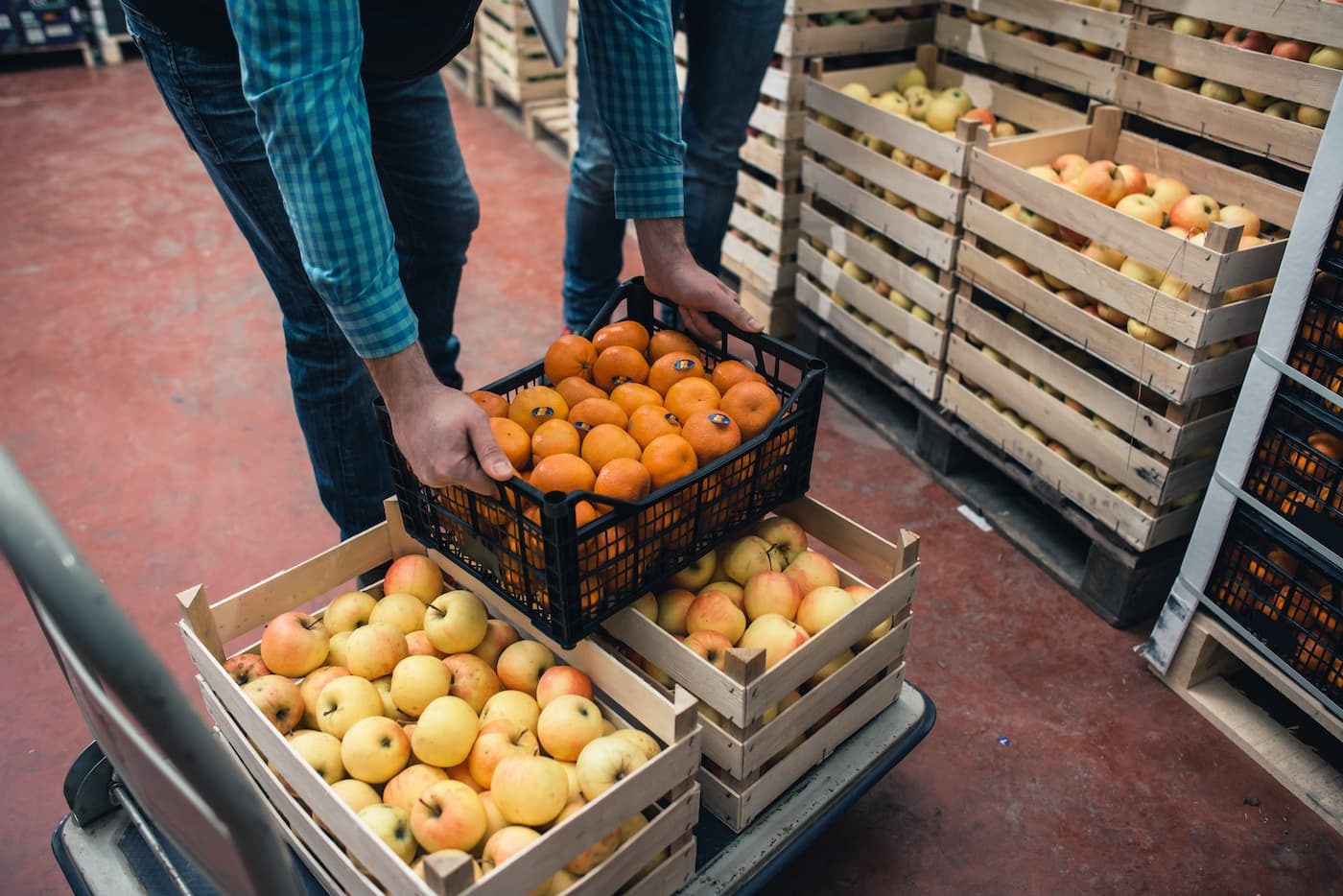Finding the best suppliers for your restaurant: A simple guide
Editorial Team
8 min read
The pandemic forced restaurant owners to confront many hard truths, one of which was the importance of their suppliers. Pandemic-related supply chain delays caused 95% of restaurants to experience significant supply delays or shortages of key food items, according to the National Restaurant Association.
Thankfully, the restaurant industry has bounced back from those difficult times, but one thing is still true–supply chain challenges continue to be obstacles that cannot be overlooked. Reliable, quality food suppliers for restaurants are one of the few key components that a dining establishment must have to remain operational. As a result, take time to carefully vet and build relationships with your key partners.
The role of restaurant suppliers
Restaurant suppliers play a crucial behind-the-scenes role in the success of your restaurant. They keep the kitchen stocked, help ensure quality products, and provide valuable support that allows you to focus on what you do best: creating a great dining experience for your customers.
Restaurant suppliers source and deliver a range of ingredients, from fresh produce and meats to dairy, dry goods, and even desserts. They act as a one-stop shop, offering bulk ordering and eliminating the need for restaurants to manage multiple vendors for each item. Bulk ordering also allows restaurant owners to get competitive pricing and improve profit margins.
New restaurant owners should take the time to carefully vet suppliers for quality and on-time deliveries. Many suppliers also offer expert advice on menu planning, cost-saving strategies, and industry knowledge that can help you navigate the complexities of opening for guests. Ideally, you’ll want to find a long-term partner that’s invested in your success.
Different types of suppliers for restaurants
Depending on your restaurant’s format and menu, there are several different restaurant suppliers with which you will work. This list will vary depending on whether you run a fine dining establishment, food truck, or café. Your unique menu will also determine the food suppliers you need to partner with–an organic, farm-to-table café, for instance, will have different needs than an all-night diner.
Regardless, here are a few main categories of food suppliers for restaurants to consider.
Wholesalers or distributors
These suppliers purchase goods in bulk directly from manufacturers or producers and then distribute them to restaurants. They usually offer a wide range of products, including fresh produce, meat, seafood, dairy, dry goods, and frozen foods.
Farmers and farmers’ markets
You may decide to source fresh produce, meat, dairy, and other items directly from local farmers or markets to support local producers and promote sustainability.
Specialty food producers
These suppliers focus on unique, high-quality goods and specialty items like artisanal cheeses, cured meats, organic products, or gourmet condiments.
Seafood suppliers
These suppliers often have relationships with fishermen or aquaculture operations to deliver fresh or frozen fish and shellfish.
Meat and poultry suppliers
Suppliers that provide fresh, frozen, or processed products, including beef, pork, poultry, and lamb, in different cuts or grades.
Bakeries and pastry suppliers
For restaurants that bake bread, pastries, and desserts, bakeries and pastry suppliers provide essential ingredients like flour, yeast, sugar, and specialty baking items. They may also offer pre-made dough or baked goods.
Beverage distributors
This group supplies beverages like wine, beer, spirits, soft drinks, and specialty drinks.
This is a broad overview of the many types of food suppliers for restaurants. For example, you may also decide to work with international suppliers who can source products from different regions to match your cuisine. There are also online vendors and local co-ops to consider.
What’s the difference between vendors and suppliers?
The terms “vendors” and “suppliers” are often used interchangeably, but they can have slightly different connotations. While both terms refer to entities that provide goods or services, “supplier” tends to emphasize the relationship within the supply chain and can encompass broader partnerships, while “vendor” focuses more on the act of selling or providing specific products or services to a buyer.
How to find good restaurant food suppliers
It’s worth taking the time to do some research before signing any agreements with food suppliers. As you consider how to find food suppliers for a restaurant, look to these sources for recommendations and ask these important questions.
1. Ask for recommendations from others in the industry
Start your search by talking to other chefs, restaurant owners, and food service professionals in your area. They’ll likely have experience with a variety of suppliers and can give you some good insight. Additionally, search online for reviews and feedback to gauge a restaurant supplier’s reputation for quality, reliability, and customer service.
2. Attend trade shows or expos
Visiting food industry trade shows and events where suppliers showcase their products allows you to meet suppliers in person, sample their offerings, and discuss your needs face to face.
3. Check online directories
Several online directories list food suppliers and allow you to filter by location, product, or type of cuisine. The USDA offers a list of food supplier directories to help you find the right place to look.
4. Ask for samples
When you’ve created a list of potential suppliers, ask each candidate to provide samples of their ingredients. Most suppliers are willing to send you a free sample to help you assess whether their ingredients meet your standards and align with your restaurant’s culinary vision.
Questions to ask suppliers
Here’s a list of questions to ask suppliers as you vet their offerings and consider who is the best partner to go the distance with your restaurant.
- What are your payment terms?
- How long has your company been in business?
- Where do you source your products?
- What is the minimum order?
- Do you offer discounts for bulk or volume orders?
- Do you have a contingency plan if there’s a supply chain issue?
Use these questions to narrow your list of candidates down, and then get even more specific. Consider asking, for instance, “How flexible are you in adjusting delivery schedules or quantities based on demand?” and “Can you provide documentation of your compliance with food safety regulations?”
Try to be consistent in asking each supplier the same questions–this helps ensure you compare apples to apples (pun intended).
Tips for negotiating terms with restaurant suppliers
Before going into negotiation for any restaurant supplies, do your research and analyze your needs to know the current market rates for the ingredients you need. How much of each ingredient do you use? How often do you need deliveries?
Open the negotiation with clear expectations. While price may be your chief concern, any negotiation should also consider delivery schedules, payment terms (like extended credit, for instance), minimum order requirements, or even free samples or equipment rentals with larger purchases.
Ultimately, your goal should be to find a group of suppliers with which you can foster strong, reliable relationships. When you can set terms that benefit both parties in the long run, you’ll be able to leverage goodwill to get better deals or priority attention down the line.
How to change restaurant suppliers
Over time and as your restaurant grows, you may need to renegotiate the agreement terms you originally set for your suppliers. Maybe your agreement term is up, or maybe you need to uplevel to a bigger, more efficient restaurant supplier. Either way, it helps to have leverage going into the conversation.
Before you renegotiate or end a term with your existing supplier, identify any leverage points you have that can strengthen your position. The volume of your orders, your reputation in the industry, or the potential for more business can entice your existing supplier to change their terms or price to suit your needs.
Don’t be afraid to politely decline an offer that doesn’t meet your needs. This shows you’re a serious negotiator and might nudge the supplier to offer a better deal. And, make sure you have a list of new suppliers at the ready in case you do need to walk away.
If and when the time comes to switch restaurant suppliers, it helps to have your restaurant data available. Clover’s restaurant POS system automates inventory tracking so you can focus on big-picture metrics contributing to supplier success. Clover’s tracking and reporting allows you to filter your POS reports to see your busiest times and your best-selling items, from monthly sales trends down to the granular details. This information puts you in a much better position to negotiate (and renegotiate) payment terms with your restaurant suppliers.
Schedule a free consultation with a Clover Business Consultant today to learn if our POS systems are right for your restaurant.
Related Posts
How Clover helps retailers run their businesses: Inventory edition
8 stellar marketing and advertising examples to inspire you
Popular Topics
Stay In Touch
Sign up and learn more about Clover.
Thank you for your subscription!
Recent Stories
- How to design a restaurant recipe card–and share it
- Is your business a victim of shrinkflation? Don’t pay more for shorter receipt rolls.
- How to buy a restaurant
Please share your contact information
to access our premium content.
Thank you for sharing your contact information.
Download Now





